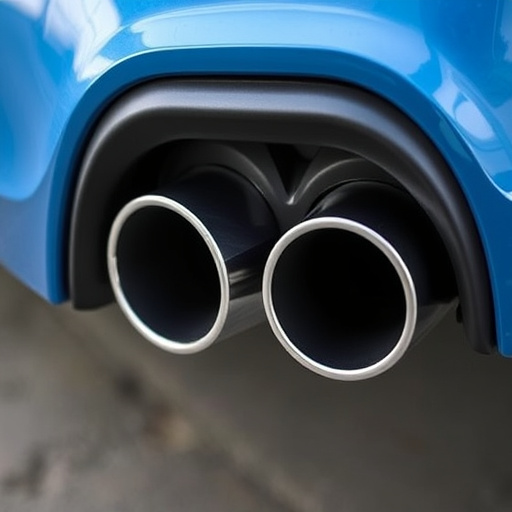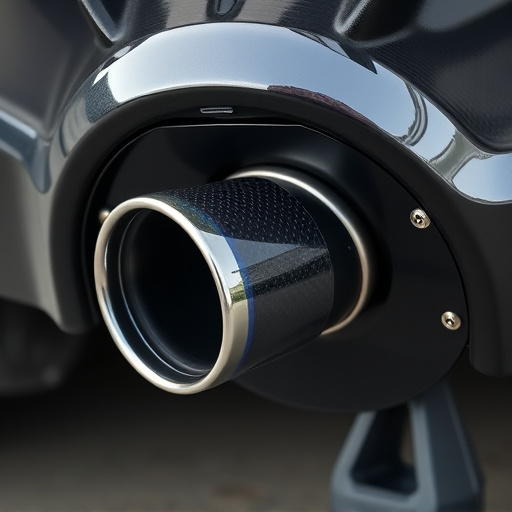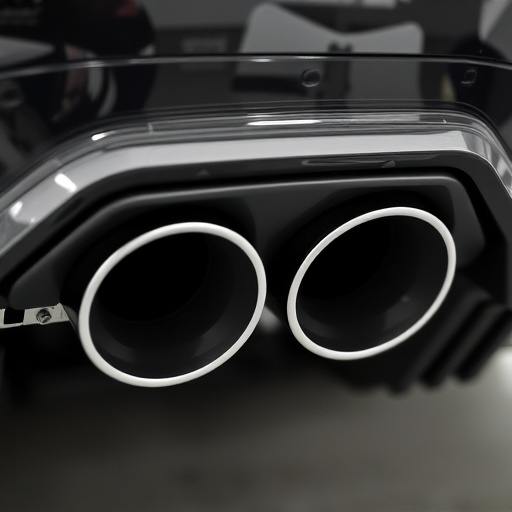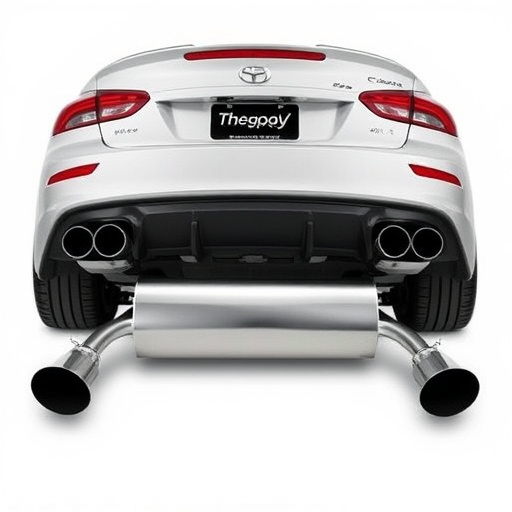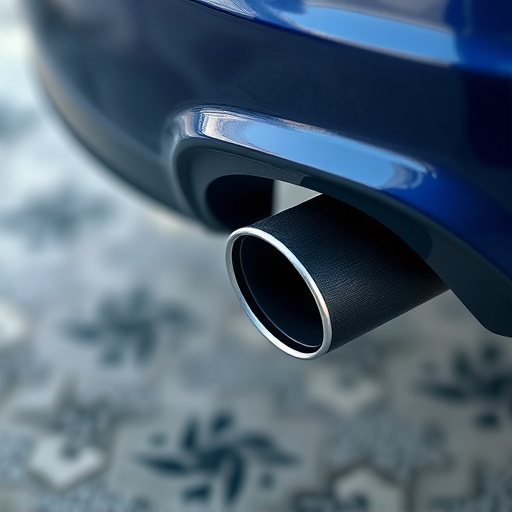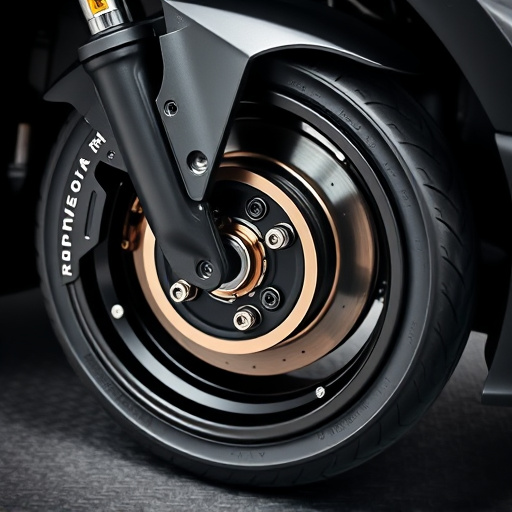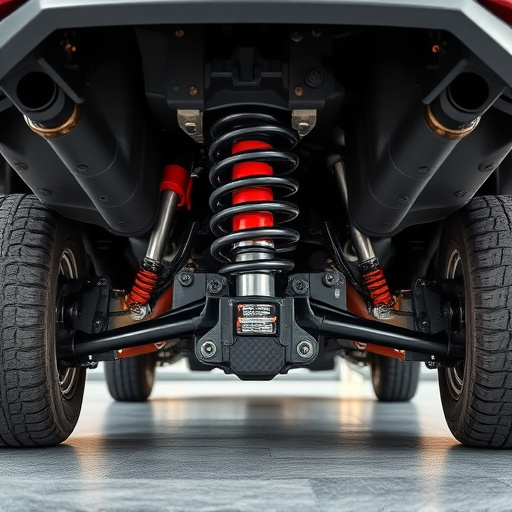Cold Air Intake (CAI) filters are key upgrades for drivers seeking improved engine performance and better fuel economy. They direct cool, dense air into the engine, enhancing combustion and reducing fuel consumption compared to standard filters. CAIs, when combined with other modifications, ensure optimal oxygen supply, leading to increased torque, power, and responsiveness. These filters also improve engine durability by minimizing restrictions in the intake system and withstanding harsh conditions. High-quality CAI filters offer reliable performance improvements similar to top-tier automotive parts.
Cold air intake (CAI) filters are a simple yet powerful modification for vehicles, offering both performance enhancements and fuel economy benefits. This article delves into the mechanics of CAI filters and their pivotal role in optimizing engine efficiency. By directly drawing in cooler, denser air, these filters support better combustion, resulting in reduced fuel consumption. Beyond savings at the pump, CAI filters enhance vehicle durability and can contribute to a more sustainable driving experience.
- Understanding Cold Air Intake Filters: Their Role in Vehicles
- How CAI Filters Directly Impact Fuel Efficiency
- Benefits Beyond Fuel Savings: Performance and Durability Considerations
Understanding Cold Air Intake Filters: Their Role in Vehicles

Cold Air Intake (CAI) filters are an essential component of a vehicle’s engine system, playing a crucial role in improving fuel efficiency. These filters are designed to direct cool, dense air into the engine, enhancing its performance and reducing overall fuel consumption. Unlike standard air filters that rely on limited airflow, CAI filters capture and deliver higher volumes of cold air, which is vital for optimal combustion. By providing clean, cool air directly from the atmosphere, they ensure the engine receives the ideal mix of air and fuel, resulting in more efficient burning.
This simple yet effective modification works hand-in-hand with other performance upgrades like cat-back exhaust systems or high-flow performance air filters. While a cat-back exhaust improves exhaust flow, reducing backpressure, the CAI filter enhances the intake side by ensuring sufficient oxygen supply. Combining these modifications can lead to significant improvements in fuel economy and engine response, making them popular choices among car enthusiasts seeking both performance and efficiency.
How CAI Filters Directly Impact Fuel Efficiency
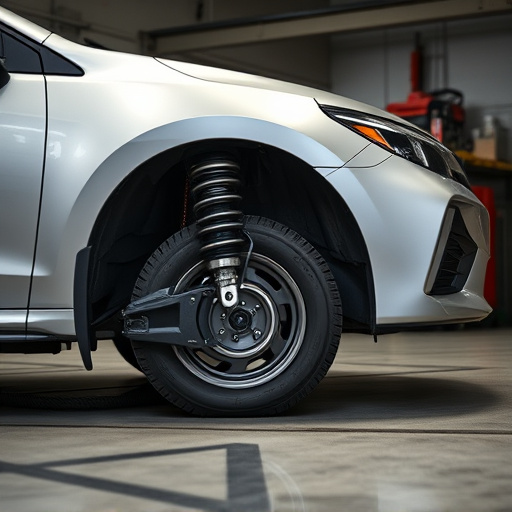
Cold Air Intake (CAI) filters play a direct role in enhancing fuel efficiency within an engine. Unlike traditional air filters that restrict airflow, CAI filters are designed to maximize it. By allowing cooler and denser air into the engine, these filters support better combustion, leading to improved torque and power output. This increased efficiency reduces the overall load on the engine, thereby minimizing fuel consumption.
Furthermore, the direct impact of CAI filters extends beyond improved airflow. They also help in reducing backpressure in the intake system, which can be caused by restrictive exhaust mufflers or inefficient suspension components. This reduction in backpressure allows for smoother and more consistent air flow into the engine, further enhancing its performance and fuel economy.
Benefits Beyond Fuel Savings: Performance and Durability Considerations
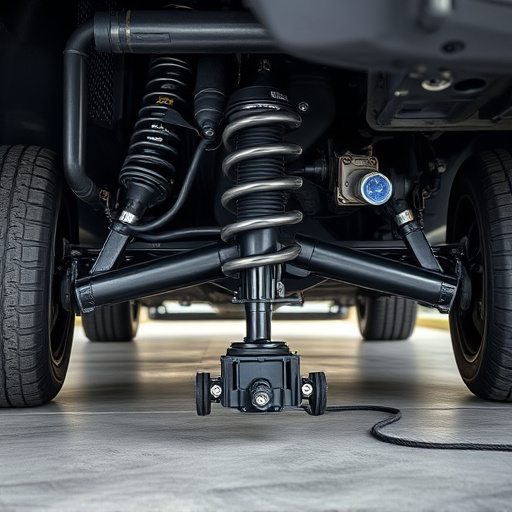
Beyond saving on fuel costs, a cold air intake filter offers significant performance and durability benefits. By directing cool, dense air directly into the engine, these filters optimize combustion, leading to improved horsepower and torque. This direct path also minimizes restrictions in the intake system, allowing for better airflow and engine response.
Additionally, high-quality cold air intake filters are designed to withstand harsh environmental conditions, from dust and debris to extreme temperatures. Their robust construction ensures longevity, reducing the need for frequent replacements. Unlike some aftermarket parts, well-made cold air intakes can complement the vehicle’s original equipment, enhancing its overall performance without compromising reliability, much like how top-tier brake rotors offer superior stopping power while maintaining consistent braking performance.
Cold air intake (CAI) filters play a significant role in optimizing vehicle performance and efficiency. By directly drawing in colder, denser air from outside the engine bay, these filters enable better combustion, leading to reduced fuel consumption. Beyond savings at the pump, CAI filters also enhance engine durability and power output, making them a smart investment for any vehicle owner seeking both performance and economic benefits.

